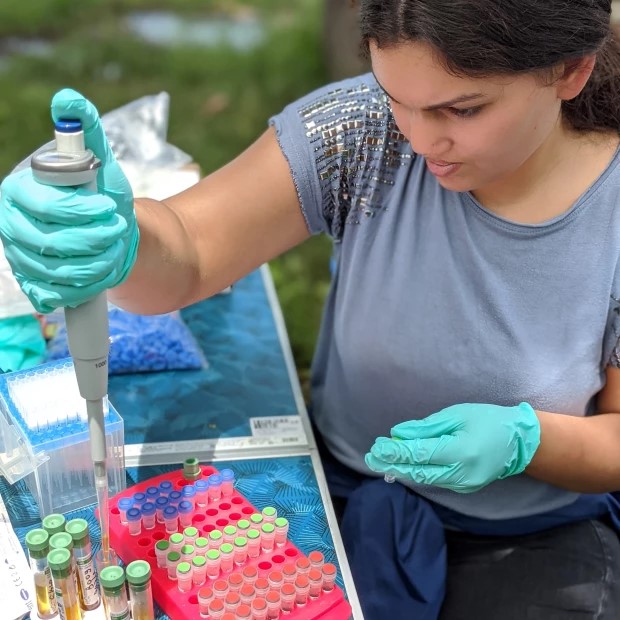
The
overarching learning objectives of this course include:
- Identification of the challenges that
climate change poses to global health.
- Definition and delineation of the
challenges confronting vulnerable populations in times of crisis.
- Exploration and evaluation of
potential solutions for health-related issues arising in the context of crises.
- Application of scientific
methodologies to proactively anticipate and address future health-related
challenges faced by populations.
These objectives form the foundation upon which this course is built, fostering a comprehensive understanding of health issues and crises catalysed by climate change and related factors.
Generic competencies:
- Search information in relevant sources from different disciplines
- Critically assess data & findings in literature and other sources
- Interpret, summarise & present information orally and graphically

This CIH course component is an introduction to concepts and methods to analyse health problems, interventions and health programmes. This analysis helps to understand the importance of the problem, its burden and its determinants. The theoretical aspects of four main intervention strategies: vector control; screen, test and treat; vaccination strategies; and behavioural interventions, are discussed whether applied as a preventive, curative or rehabilitative concept. Some current operational challenges in the prevention and control of key health problems are touched upon. Concepts taught in the first two weeks will be applied in the context of an outbreak, both in outbreak investigation and outbreak mitigation.
The concepts, analytical frameworks, and implementation strategies are illustrated through applications in a wide range of health problems: tuberculosis, malaria, measles, hepatitis B, leishmaniasis, mpox, diabetes, yellow fever and COVID-19. The focus is on low- and middle-income countries, but also other contexts of high-income countries are included.
The overall goal of the course "Health Problems: From Prevention to Control" is to empower students with a comprehensive understanding of health challenges and equip them with the knowledge, skills, and ethical awareness needed to make meaningful contributions to the prevention, management, and control of health problems, thereby promoting individual and community well-being.
By the end of course component 1 (CC1), you are expected to have a comprehensive understanding of various health issues and get the knowledge and skills to effectively prevent, plan interventions, and control them.
You should specifically be able to:
Describe the importance/burden of a particular health problem in terms of frequency, severity, inequity and economic cost and compare it with the importance of other health problems
Determine different stages of health problem/disease evolution, their (social) determinants, transmission modes (for communicable diseases)
Explain the link between epidemiological model, risk factors and intervention approaches
Indicate the importance of implementation challenges in the prevention and control of key health problems, such as acceptability, identification of target groups, community and patient involvement
Describe the four main public health intervention strategies in terms of effectiveness: vector control, vaccination, test & treat, and behavioural change strategies
Identify theoretically possible intervention strategies - ranging from health promotion, disease prevention and control, and curative care – that can reduce the burden at individual and/or population level caused by a particular health problem
Detect an outbreak, based on epidemiological data
Identify steps of an outbreak investigation
Describe an outbreak in terms of time, place, person
Define and plan an appropriate outbreak response
Communicate findings of an outbreak investigation

The course component 4 "Health in Vulnerable Situations" is designed to empower healthcare professionals with the knowledge, skills, and perspectives necessary to address the multifaceted challenges faced by individuals and communities in vulnerable situations. In this course, we focus on vulnerability related to with sexual and HIV health issues, maternal health, and child health. By adopting a comprehensive and integrated approach, the course aims to contribute to improved health outcomes and reduced disparities.
Clinicians, nurses, midwives and allied health professionals play a significant role in ensuring the promotion of reproductive, sexual, maternal and child health. You will focus on the specific needs of groups in vulnerable stages of their life-course, including children, adolescents and pregnant women. In addition, you will understand how and why key populations such as men who have sex with men or sex workers, face multiple vulnerable situations. You will learn how to critically assess sexual and reproductive health problems and how to develop an action plan to address priorities in a particular local health system. You will get an in-depth perspective of the challenges to organise combination HIV prevention and a tailored integrated programme approach for children and neonates and their families.
The overall goal is to introduce students to a range of understandings of vulnerabilities which have impacts on health and well-being. We accomplish this goal by following across the life-course using the continuity of sexual, reproductive, maternal and child life stages. In each stage, we identify and analyze the main causes of vulnerability (including biological, socio-economic, all forms of discrimination, gaps in evidence and clinical care provision, health systems) and apply a health system perspective to addressing them. We make extensive use of the case study method to demonstrate practical approaches to addressing vulnerability (of people, populations, situations and health systems), using a range of countries.


